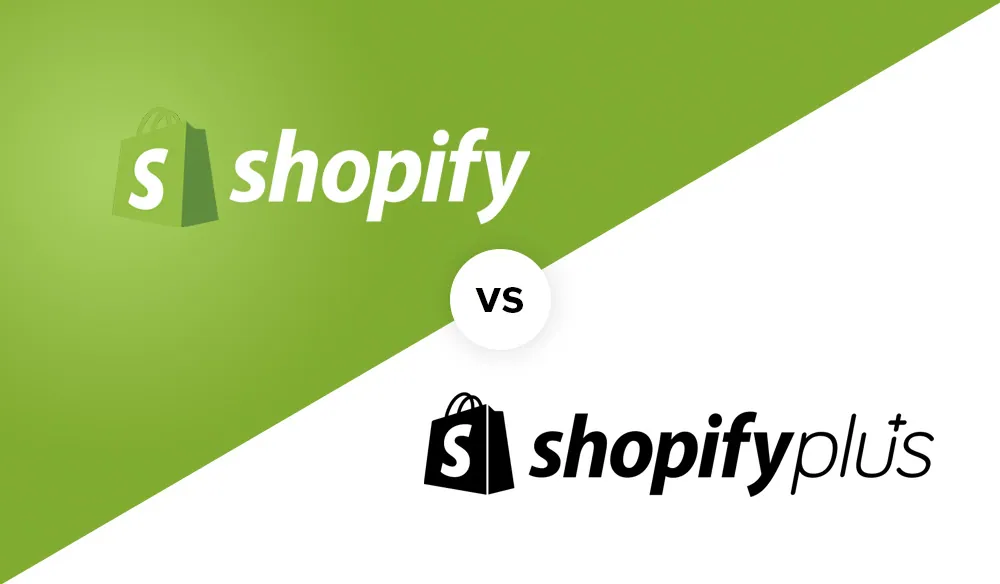These days who doesn’t want to shop online through an e-commerce platform? But nowadays many e-commerce platforms offer paid subscriptions for consumers as well as sellers. Well, Shopify also offers its Shopify plus version to store owners. So let’s know about the key differences between Shopify and Shopify plus.
Shopify and Shopify Plus are the two e-commerce platforms available to store owners. Both systems are great for creating an online business, but they also have certain benefits and drawbacks. Making the best platform choice may be challenging and takes significant thought.
To assist shop owners in making the best decisions for their companies, this article will take you through all the important differences between Shopify and Shopify plus.
So without further ado, let’s get into the details of the key differences between Shopify and Shopify plus.
What Exactly is Shopify?
Without developing a website, company owners and entrepreneurs may launch online shops using the Shopify e-commerce platform. It has become one of the most popular solutions for individuals wishing to set up stores online for a good reason. Shopify has several customisable themes and layouts in addition to strong functionality and an easy-to-use interface.
Feature Highlights of Shopify
- Point of sale on Shopify (POS)
- Online retail outlets
- Security components
- Mobile compatibility
What Exactly is Shopify Plus?
An e-commerce platform at the enterprise level called Shopify Plus is intended for companies who process a lot of orders. Shopify Plus, which was introduced in 2014, enables rapidly expanding e-commerce companies to scale up while saving money, resources, and development time.
With a wealth of fantastic tools and features, Shopify Plus developers give you the ability to stay on top of the ever-evolving e-commerce trends and client purchasing patterns.
Feature Highlights of Shopify Plus
- With the Admin tool, you can control all shops from a single place
- A wider range of services and connections, including third-party payment processors and shipping rate calculators
- Shopify POS Plus may combine sales data from many locations
- Additional authorization settings
Shopify vs. Shopify Plus
An Attentive Account Manager
Shopify Plus goes above and beyond the regular Shopify plans by assigning you a Launch Engineer (if you’re migrating from another platform or looking to build a new site) and a Merchant Success Manager. Regular Shopify plans already provide excellent support to users via phone, email, live chat, and Shopify Experts.
At The Checkout Page, There Are More Controls And Personalization Possibilities
It seems obvious that, as a business owner, you would want to pay close attention to your high net worth clients and how they behave while they are checking out. Based on the contents of your shopping basket and other factors, Shopify Plus enables you personalize the checkout process.
Users may also communicate with Shopify Scripts. You have greater power and may alter the customer information, shipping choices, and payment methods using the script editor. In contrast, Shopify. Customizing the checkout process requires the use of a specific software.
Integrations of API
When comparing Shopify Plus with the regular version, API integrations are crucial. Shop owners may link their stores with third-party applications and services, such as accounting software, customer relationship management (CRM) systems, marketing automation tools, and shipping providers, thanks to Shopify Plus’s more powerful API integration features. This enables company owners to automate procedures, improve client experiences, and simplify operations.
Analytics
The availability of each platform’s analytics and reporting features is the next item on our list of distinctions between Shopify and Shopify Plus. Even the most basic Shopify plans come with analytics tools, but they’re not as robust as those found in the Shopify Plus or Shopify Advanced plans.
Aid and Support
Excellent customer service and customer service automation are two important components of a successful retail organization. Customers get irritated and are less inclined to frequent your store when you provide poor or no customer service.
A solid and responsive support system helps you manage your business better, which helps your customers have the greatest experience. The same is true for Shopify customers’ assistance and support. Customers who are interested in purchasing from you may suffer if you don’t get the right assistance to resolve problems with your store.
Conclusion
In contrast to Shopify Plus, which offers an enterprise-focused version of Shopify’s solution, Shopify is an e-commerce platform outfitted with all the features and capabilities small to medium-sized companies need to build and manage a standalone online shop from scratch.
The target clients are the major distinction between the Shopify and Shopify Plus systems.
Due to its price and effectiveness, Shopify is a wise option for small, medium-sized enterprises, as well as for big ones. The cherry on top for major enterprise-level businesses, however, is Shopify Plus since these businesses need a more robust infrastructure to support their enormous corporate operation.

